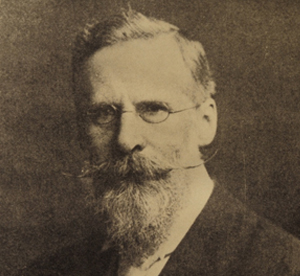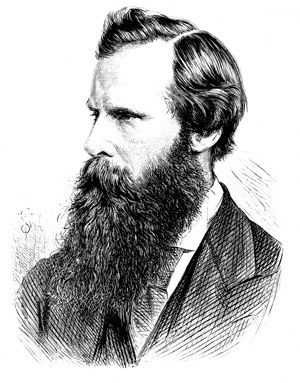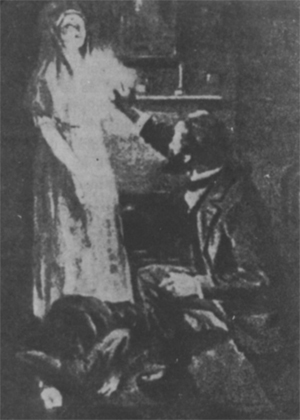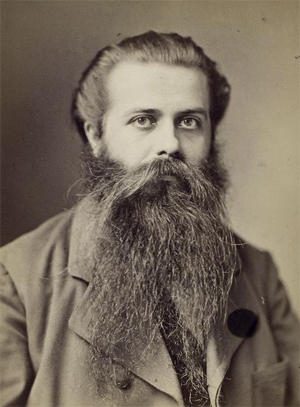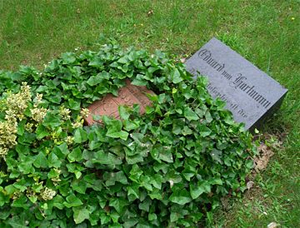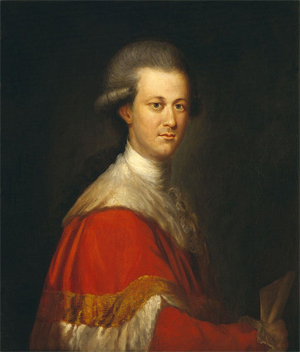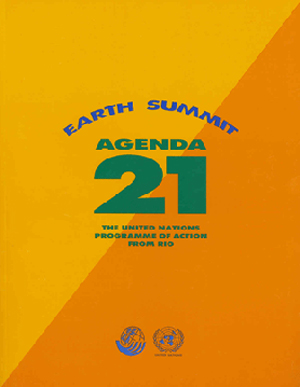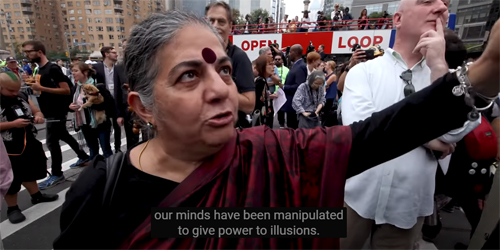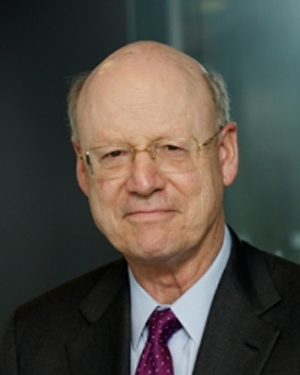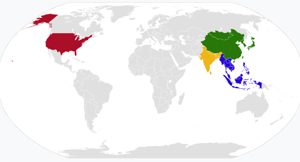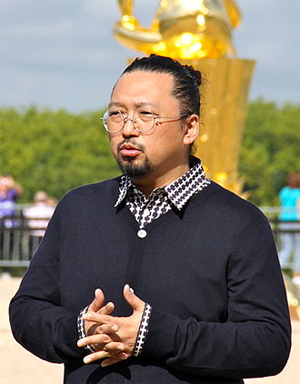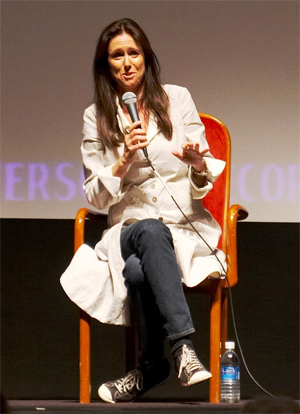by Ray Perkins, Jr.
Philosophy / Plymouth State College
Plymouth, NH 03264-1600, USA
Many commentators have claimed that Bertrand Russell advocated preventive war against the Soviet Union in the 1945-48 period in order to force the Soviets into world government and thus prevent a future war of total nuclear annihilation. Russell has been faulted not only for advocating an inherently morally repugnant policy but, also, for a time denying that he ever held such a view.
In what follows I wish to examine the record in order to determine just what Russell did advocate with regard to Russia during the period in question. We shall find that the record is reasonably clear: Russell did publicly espouse a form of preventive war in the early post-World War II years, although it was a policy rather less bellicose than what is usually attributed to him. As regards Russell's denials, we shall see that they were not the distortions of the record that his critics have claimed. But his later avowals are inaccurate regarding important details and invite speculation that Russell may have wanted to disguise a portion of the record despite his claim in his autobiography to have finally set it straight.
A. THE POLICY
Let us distinguish several senses in which one could be said to advocate a preventive war against Russia. In the simplest, most straightforward sense, there is the unconditional advocation of preventive war:
PWu: We (the West) ought to wage war against the Soviets (now or in the immediate future).
But there is also a conditional advocation in which the waging of war is conditioned upon certain Soviet behaviour. In particular Russell wanted the Soviets to agree to world government and/or to the internationalization of atomic energy. Russell's hope, in the early years after World War I I, was that the US, with a nuclear monopoly, could effectively threaten the Soviets with war in order to get them to agree. Russell's advocation takes the form:
PWc: We ought to wage war against the Soviets unless they agree, under threat of war, to international controls.
It is highly relevant to the moral implications of PWc whether the advocate of the policy believes that the threat of war will be effective. Thus, we can further distinguish:
PWc1: We ought to wage war against the Soviets unless they agree, under threat of war, to international controls; and they will probably agree.
PWc2: We ought to wage war against the Soviets unless they agree, under threat of war, to internationalize controls; and they will probably not agree.
I claim that PWc1 is Russell's public position from 1945 to 1947. Russell made more than a dozen public statements in speeches and articles concerning Russia and war in the 1945-48 period, but in none does he advocate PWu, or even PWc2, as did the us Department of Defense, for example, from 1946 to 1950. During those years the Pentagon hatched various secret plans such as BROILER and TROJAN featuring "bolt-out-of-the-blue" surprise nuclear attacks on the Soviet Union.l
It is important to see the main moral difference between PWc1 and the other formulations of preventive war policy. And that difference is just this: one who advocates PWc1, unlike one who advocates PWc2 or PWu, does not advocate a policy which he or she believes will directly result in war.2 As we shall see, this is a feature of Russell's position which, despite his repeated affirmations in the early post-war period and later, has been largely ignored by his critics.
There is a surprising amount of misunderstanding concerning Russell's policy. Many have failed to grasp its conditional nature. Thus, I. F. Stone, writing about Russell's views at this time, sarcastically paraphrases Russell's advice as: "why not drop one more bomb on Russia before it is too late, and make them consent to world government and save mankind from what's coming?"3 What Russell actually advocated in the 1947 speech to which Stone refers is best put in Russell's own words:
If the whole world outside of Russia were to insist upon international control of atomic energy to the point of going to war on this issue, it is highly probable that the Soviet government would give way on this issue. If it did not, then if the issue were forced in the next year or two, only one side would have atomic bombs, and the war might be so short as not to involve utter ruin.4
Again, in an address at about the same time to the Royal Empire Society he said:
I should like to see as soon as possible as close a union as possible of these countries who think it worth while to avoid atomic war. I think you could get so powerful an alliance that you could turn to Russia and say, "It is open to you to join this alliance if you will agree to the terms; if you will not join us we shall go to war with you." I am inclined to think that Russia would acquiesce; if not, provided this is done soon, the world might survive the resulting war and emerge with a single government such as the world needs.5
Russell was obviously advocating a risky, and some might say, morally dubious policy. But it is a different and less morally problematic policy from the one that Stone caricatures.
Similarly, Alan Ryan, correctly pointing out Russell's consequentialist moral posture, completely ignores the fact that Russell apparently believed that his policy would not require war. He tells us that Russell's advocacy"... varied in tone but never in content. The content always included the probability of war. The tone varied according to whether Russell thought it would be a long war or a short one."6 This is not true.
Douglas Lackey, in an otherwise astute piece on Russell's writings on the nuclear arms race, describes one of Russell's earliest formulations of his preventive war policy-his 20 October 1945 Cavalcade article-as "a fairly straightforward call for preventive nuclear war".7 What Lackey means here is really unconditional preventive nuclear war. He explains:
True, the launching of the war is to be proceeded by an ultimatum, but the ultimatum demands the abrogation of national sovereignty by the Soviet Union. Under such conditions, the distinction between a conditional call for preventive war and an unconditioned call for preventive war virtually dissolves. (Ibid.)
This is a coarse interpretation. The ultimatum would require the Soviet Union to join a democratic world confederation and thereby relinquish some of its national sovereignty. But the relinquishment of sovereignty here pertains only to the (alleged) right of nations to acquire armaments and make war. The right to practise one's preferred form of government, including socialism, would not be denied.8 It seems that acquiescence to this sort of control, however undesirable, is to be distinguished from defeat in a nuclear war. Moreover, although Lackey correctly points out that Russell did not at this time have his facts straight on the winnability of a nuclear war against Russia, he, like Ryan, ignores the fact that Russell apparently did not think that what he was advocating would involve war (p. 247). Although it is true that Russell does not speculate on the likelihood of Soviet acquiescence in the Cavalcade article, he is at least· moderately optimistic in several other statements made at the time.9
Russell's views underwent modification in 1948. Owing to international events in early 1948 (specifically, the Czech Communist coup and the continued Russian refusal to accept the Baruch Plan for internationalizing atomic energy), Russell apparently began to have doubts about the Soviet response to threats, and in a piece for the New Leader (March 6), he advocates the threat but adds that he ventures "no opinion" on the question of whether the Soviets will comply.10 This, I believe, is the closest that Russell came to a public statement advocating preventive war against the Soviets in the sense of PWc2.
But in a private letter written in May 1948 to Walter Marseille he says, after endorsing PWc, "Communism must be wiped out, and world government must be established ... I do not think the Russians will yield without war."11 This is clearly the doctrine we have called PWc2. While theoretically distinct from PWu -- a doctrine which Russell never espoused -- it is nonetheless a harsh and morally offensive, if not indefensible, doctrine. This, I believe, is his only expression-public or private -- of PWc2.
Russell claimed to have forgotten about this letter until Marseille published it, to Russell's surprise, six years later. As I shall suggest in the next section, Russell's embarrassment concerning his Marseille letter and its harsh recommendation may have caused him to obscure the record regarding its content in his later years.
Some of Russell's critics, however, have unfairly cited two of his 1948 public statements as proof that he did advocate war against the Soviet Union at the time. One is a June article in a Swedish publication; the other is a speech at Westminster School in November. But a close reading of these statements makes it difficult to construe either one as an advocation of preventive war in any recognizable sense of the term. I want briefly to examine each because they, especially the Westminster School talk, have been taken to give an unduly bellicose interpretation of Russell's public position in 1948, and because they indicate a direction away from preventive war that Russell's thinking was taking as the events of that year unfolded.
In the Swedish publication Dagens Nyheter (June), he says that he doubts that the Soviets would agree to join a world alliance with an international inspectorate to control armaments. But he does not urge that Russia be given an ultimatum. Rather he merely says that Russia should be invited to join the alliance, but if she refuses inspection" which", he says, "is all too likely"-war would probably eventually occur: "Even were a precarious peace preserved for a time, one must -- recalling the earlier history of human folly -- expect that sooner or later war would break out. If it did, we should have a truly great cause to fight for: that of world government...."12
The phrase "all too likely" is, perhaps, sufficiently ambiguous to allow that Russell did not believe that Soviet refusal was more probable than not. (I might properly say that I refuse to play Russian roulette on the grounds that it's "all too likely" that I'd blow my brains out, without thereby implying that I thought the probability of the event was greater than .5.) But I think most people would say that although his proposal lacks the moral harshness of either PWu or PWc2. it is still morally disturbing to the extent that it advocates something which is thought to have a significantly high chance of resulting in an event which is to be expected "sooner or later" to lead to war. Of course, Russell thought that war was a likely eventual result of any course of action (short of capitulation to the Soviets) which did not include world government. And he says regarding it, "... it can not be achieved until the Soviet leadership has been either defeated in war or so daunted by the situation as to submit to international inspection ... " (ibid.). But he doesn't rule out the second alternative. Moreover, in the article he specifically recommends, as a first step for the immediate future, that the West "must prevent an immediate war by so strengthening west European defences that Russia would be reluctant to attack." The implication here is that any war which broke out would not be initiated by the West.
In a little-known paper published in September of 1948 (presumably written after the onset of the Berlin crisis in the last week of June), Russell is perhaps even more pessimistic than in the Swedish article, saying that he thinks it "improbable" that world government can be brought about "except by force", i.e. war. But he does not advocate war, nor does he advocate an ultimatum or using a Western coalition to bully the Russians into submission. The article is concerned merely to make the point that should war occur, there would be a reasonable- chance that a victorious Western alliance could bring about world government. But he clearly states that world government by consent is the path to be preferred and supported, adding:
Nevertheless, in spite of the difficulties, we must hope that a gradual approach to international government may become possible without another world war.... So long as there is not actual war, we must continue to seek ways of diminishing the likelihood of war....13
Similarly, in Russell's November 1948 talk at the Westminster School in London, there is no mention of an ultimatum; rather, he advocates that the West strengthen defences to show the Russians that "they can't make war successfully."14 But in the question-and-answer period after his talk, Russell seems, as some critics have noted, to be advocating immediate war with Russia:
As he saw it there were three alternatives if the present aggressive Russian policy was persisted in: (a) War with Russia before she has the atomic bombs, ending fairly swiftly and inevitably in a Western victory; (b) war with Russia after she has the atomic bombs, ending again in Western victory, but after frightful carnage, destruction and suffering; (c) submission.... This third alternative seemed to him so utterly unthinkable that it could be dismissed; and as between the other two the choice to him, at least, seemed dear. (Ibid., p. 43. Russell's emphasis)
About one week later he claimed that press reports of his talk were inaccurate, and he denied that he had urged immediate war against the USSR.15 Five years later he referred again to the "slanderous" reports of the talk which he attributed to a single reporter and which he said were largely responsible for the lingering but false view "that I supported a preventive atom war against Russia."16
Strictly speaking, however, Russell was at most calling for preventive war conditionally. This, I take it, is the point of his emphasis on the conditional phrase "if the present aggressive Russian policy was persisted in". We must remember that at this time the international situation was extremely tense. The Soviets had managed a Communist coup in Czechoslovakia in February, and the Berlin Crisis and airlift were in their fifth month. Many in the West fully expected that war would break out. But the immediate crisis soon passed. For that reason the conditional of his disjunctive syllogism was not fulfilled, and his alternatives were, therefore, non-starters. Indeed, the crisis passed in September 1949, about the same time that the West learned that the Russians had exploded an atomic bomb. No longer could one reasonably believe in a short, easily winnable war with the Soviets.17
Moreover, it is important to realize that Russell's "three alternatives" comment was made in response to the question: "If there is another war what would be the chances of survival of this country?" In this context, Russell's answer looks.less like a recommendation for immediate war than merely a hypothetical comparative evaluation to the effect that a small victorious war against Stalin sooner would be preferable to either a large one later or to submission. Hardly a morally outrageous claim. Indeed, he had already made his recommendation, and it was about how to prevent a war:
The question is whether there is to be war or whether there is not; and there is only one course of action open to us. That is to strengthen the Western Alliance morally and physically as much and as quickly as possible, and hope it may become obvious to the Russians that they can't make war successfully. ("Atomic Energy and the Problems of Europe", p. 43)
This certainly makes it look like Russell is advocating merely a defensive posture, and that any subsequent war would be a defensive response to Russian aggression, not a preventive or pre-emptive strike by the West, as he later insisted.18
However, in the next paragraph he says that the world ought to hope to achieve world government backed by a unified armed force because it is the "only ... way to ensure" peace. But he adds:
There is singularly little hope of establishing such a force by international agreement; the voluntary sacrifice by nations of a large part of their sovereignty is extremely unlikely.... The Western Alliance with the United States and the Commonwealth will have the nucleus for such a force. It must impose itself upon the whole world, and remain powerful, uniquely so, until the world has been educated into a unified sanity. (Ibid., p. 41)
This passage puts a different light on Russell's "defensive posture" recommendation. That is, by expanding and exhibiting its military strength, the West might not merely discourage Soviet aggression now. They might also eventually use this "nucleus" to impose on the world, and the Soviets, an international confederation. Thus, what Russell may have had in mind here is something like PWc:, where the threat or ultimatum is implied rather than overtly stated.
But is his intention more like PWc1 or PWc2? The answer, I think, depends on whether Russell thought the required imposition by the West would involve war. What does he mean by saying that the West must "impose itself upon the whole world"? Obviously military conquest is a possible interpretation. But Russell may have meant to suggest no more than an acceleration of the Truman Doctrine with "containment" plus an overwhelming global military presence to persuade the other side of the «wisdom" of Western hegemony. Indeed, one could view the post-World War II era culminating in the late 1980s and early 1990s as the more or less successful global "imposition" of the West, although one not requiring military conquest. If this is what Russell had in mind then his advice looks more like PWc1 than PWc2, although to call it "preventive war" seems excessive.
There are two reasons for thinking that Russell believed the "imposition" achievable without war. First, Russell says that one of the factors making the current situation so dangerous was Stalin's ignorance of the . effects of nuclear weapons, but he adds "even though the ultimate downfall of the dictatorship is certain" (ibid, p. 39). This suggests that Russell thought that the Soviet system, owing to its own dynamic, was bound to change for the better. If so, there was reason to hope that a unified world could eventually be brought about peacefully, provided the dangers of the immediate future could be met and war averred.
Second, he mentions the "implacable" nature of Marxist dogma in the current impasse between capitalism and communism, and he says "Against this kind of creed only superior force could prevail" (p. 42). But he immediately adds in the next paragraph, "It would· be necessary to start re-educating the Russians", and he goes on to give examples of how this might be done: "You could begin in the schools .... If a few intelligent Russians were shown round the world ... ", the effects of Communist propaganda could be undone and "within, say, thirty years, the whole of Russia could be completely re-educated." In other words, Russell thought the road to peace achievable without war, provided the Russians could be re-educated, a possibility which he seems to admit, albeit one requiring a protracted period of several decades.
These reasons, especially the. second, make it reasonable to believe that Russell's use of the term "imposition" intended merely a Western display of force together with a programme of Western propaganda. In short, it seems like a prescription for reform via something like the Cold War. Indeed, Russell's suggestions seem to anticipate by several years the cultural, educational and scientific exchange programmes begun under Khrushchev and Eisenhower in the mid-1950s. If one thinks of the evolution of Soviet reform from Khrushchev to Gorbachev as a process of successful Westernized, democratic, capitalistic re-education, Russell's estimate of thirty years was remarkably accurate.
This optimism about a non-bellicose "imposition" is stated rather less obliquely in an article which appeared nine months later (after the Soviets ended the Berlin blockade, but before the West had learned of the Soviet Bomb):
If it can be made obvious to the Russians that the west is more powerful than they are, it is to be expected that they will change profoundly and become very much more amenable.19
Let us sum up our conclusions regarding Russell's preventive war policies. In 1945-47 his public position was PWc1, i.e. the waging of war was conditioned on Soviet rejection of an ultimatum to internationalize the means of war, although he said that he thought they would comply. In early 1948, owing to crises in Europe and the Soviet rejection of the Baruch Plan, he developed doubts about whether the Soviets would acquiesce to an overt threat, and he ceased advocating anything that could fairly be called preventive war. His public views at this time .underwent modification throughout 1948 in response to international events. They either: (i) advocate the ultimatum but venture no opinion on ,Soviet acquiescence (March, The New Leader), or (ii) drop the ultimatum but predict war as an eventual outcome of an "all too likely" Soviet refusal to internationalize controls while counselling a defensive posture for the near future Gune, Dagens Nyheter), or (iii) assert war as a more probable, but not more desirable, path to world government, while advocating avoidance of war (September, The New Leader), or (iv) predict war if Soviet behaviour did not change, but offer hope of a protracted non-bellicose "imposition" of Western values on the Soviet system leading eventually to a global "unified sanity" and world government (November, Westminster School talk). None of these views is tantamount to the advocation of preventive war in the sense of either PWu or PWc2, although his March article comes close to PWc2. In one private letter in May of 1948, however, he unequivocally advocates PWc2.
B. RUSSELL'S DENIALS AND AVOWALS
Perhaps the most perplexing aspect of Russell's preventive war phase has to do with his seemingly contradictory series of denials and later avowals. Russell's main denials occur in 1948, 1951 and 1953· These denials have proved to be especially troubling for Russell because they have been taken by some of his critics as evidence of a long-term cover-up.20 What we shall find is that Russell's denials were essentially correct at the time they were made, provided one keeps in mind the important distinctions and related senses of "preventive war". A more serious problem, as we shall see, concerns the accuracy of Russell's later avowals and his later descriptions of his earlier views.
The 1948 denial occurred eight days after unfavourable press reports of his November 20 Westminster School talk.21 In that denial he is concerned to deny press reports that he "urged immediate war with Russia", i.e. he seems to be denying what we have called PWu. Although portions of that speech were not unambiguous, I think we have to say that he was correct-he did not urge immediate war with Russia-even if we decide that he was urging war in some conditional sense.
Two decades later, however, he was affirming that he had, in 1948, advocated (a version of) preventive war on two occasions. Writing in his 1969 autobiography, Russell refers to two 1948 statements which he says that he had, for a while, simply forgotten about. One of these statements he describes as '''a speech that I did not know was to be the subject of dissection by the press" (Auto. 3: 18). This speech is pretty dearly the Westminster School talk. The other is definitely his 1948 letter to Walter Marseille. The trouble is that Russell describes these statements in his autobiography as PWc1. He says:
... I suggested that the remedy might be the threat of immediate war by the United States on Russia for the purpose of forcing nuclear disarmament upon her.... My chief defence of the view I held in 1948 was that I thought Russia very likely to yield to the demands of the West. (Auto. 3: 18)
The school talk can perhaps (by a significant semantic stretch) be cast as PWc1, but not the Marseille letter. That was clearly PWc2. Russell of course did hold the view he describes in his autobiography. But it was in 1945-47, not 1948. Curiously, there is no mention of the pre-1948 statements. 22
In his autobiography Russell tells us that he was first reminded of his earlier preventive war (PWc1) statements when Walter Marseille requested permission to publish Russell's 1948 letter some years later (1954):
... I said, as I usually do, without consideration of the contents, that if he wished he might publish it. He did so. And to my surprise I learned of my earlier suggestion. I had, also, entirely forgotten that it occurred in the abovementioned speech. (Auto. 3: 18)
The record makes it difficult to accept Russell's claim that he simply forgot that he once advocated preventive war (he says "the threat of immediate war") against the Soviets until he (re-) read his Marseille letter in 1954. The reason is that only one year earlier he had written a letter to the editor of the New York Nation trying to set the record straight on his earlier views regarding war with Russia. He begins with what seems to be a blanket denial: "The story that I supported a preventive atom war against Russia is a Communist invention."23 But it is clear from the contents of his letter that he is not denying ever having held PWc1.
Indeed, in that 1953 Nation letter, he refers to a "slanderous" press report of his 1948 Westminster School talk and a "long letter of refutation" that his lawyer induced the New Statesman to publish in 1951 as the result of the editor's 18 November 1950 statement that "After the last war .,. [Russell] decided that it would be both good morals and good politics to start dropping bombs on Moscow." Russell says in the final paragraph of the 1951 letter:
I will admit that at one time I had hopes of a shorter road to general peace. At the time of the Baruch proposal for internationalizing atomic energy [1946-47], I thought it possible that the Russians might be induced by threats to agree to this proposal and thereby to save the world from the atomic armaments race upon which it is now embarked. But this hope proved vain. After the Berlin blockade and the rape of Czechoslovakia [mid-1948] I stated emphatically, what I still hold, that the Russians ought to be informed that the West would not tolerate further aggressions of this sort. My statements were mis-reported and misunderstood, and men with whom I might have co-operated chose, instead, to regard me as an enemy.24
And he concludes the 1953 denial with: "I shall be glad if you can make its contents known to anybody who still believes the slanderous report."
So Russell's 1951 denial, and the 1953 Nation letter of denial referring to it, are not denials that he ever advocated preventive war in the sense of PWc1. Rather, they are, evidently, denials that he advocated what we have called PWu. Indeed, they are admissions that he did hold PWc1 "at the time of the Baruch proposal" (1946-47), although he chooses not to describe that view as "preventive war" 'in either letter. But they are also denials that he continued to advocate that view after the 1948 crises in Czechoslovakia and Berlin (i.e. roughly after July). This is actually a fairly accurate summary of the record. 25 Note, however, that it does contradict his autobiography regarding when he gave up PWc1.
Thus, Ronald Clark and others who have charged Russell with falsely denying the record in 1953 are mistaken. The trouble is, however, that Russell himself, in his later years, seems to acknowledge the charge as true. In his autobiography he regrets that, owing to a "fault of my memory", he had "hotly denied" (prior to the reappearance of his Marseille letter in 1954) that he had ever held PWc1 (Auto. 3: 18). He gives essentially the same account in a 1959 letter to The Listener attempting to explain his 1953 denial:
Although it may seem incredible, I believed this statement [the 1953 denial] to be entirely correct at the time when I made it. I had, in fact, completely forgotten that I had ever thought a policy of threat involving possible war desirable.26
But, for the reasons already given, it's difficult to believe that Russell had "completely forgotten" about his PWc1 views in his 1953 denial. After all, in that letter he refers to the 1951 letter, which explicitly admits to having held PWc1 in 1946-47.
How are we "to explain this perplexing state of affairs? I believe the most likely explanation is that Russell was a victim of both faulty memory and a desire to draw attention away from the (PWc2 ) contents of the Marseille letter. It's implausible that simply Russell forgot about his advocation of PWc1: he had reiterated that position too many times in the early post-war period and referred to it too recently. But he probably did forget about his Marseille letter. It was, after all, only a single letter in an immense private correspondence. When confronted with it in 1954 his response was essentially to plead guilty to lesser "crimes" --that of having briefly held the less offensive version (PWc1) and of having made erroneous denials of the fact due to a "fault of memory".
This tack would require some modest modification of the record: his usage of «preventive war" would have to be expanded to include PWc1; the Marseille letter would have to be assimilated to the more benign doctrine of the 1945-47 period; and, to give credibility to the faulty memory claim, it would be necessary to "recall" only one or two instances of the advocation.
We have already seen that in his autobiography Russell admits to only two instances. We have also seen that he inaccurately describes the Marseille letter as PWc1. This could have been an understandable slip by a man well into his nineties. But even when the letter was first published in 1954 in the Saturday Review, on the same page containing his 1948 PWc2 recommendation, he explains his earlier state of mind: «I thought at the time that perhaps the Russians could be compelled to accept the offer [the Baruch Plan] by the threat of war in the event of their continued refusal."27 Here, without asserting a literal falsehood, Russell manages to cast the Marseille letter within the framework of PWc1.
That Russell did, in the post-1954 era, expand the sense of "preventive war" to include the less problematic version is evidenced by an exchange with John Freeman in a BBC interview in 1959:
FREEMAN: Is it true ... that in recent years you advocated that a preventive war might be made against ... Soviet Russia?
RUSSELL: It's entirely true, and I don't repent of it.... [N]ot that I advocated a nuclear war, but I did think that great pressure should be put upon Russia to accept the Baruch proposal, and I did think that if they continued to refuse it might be necessary actually to go to war.... [T]he odds were the Russians would have given way.28
Here Russell includes PWc1 within the intension of "preventive war" while clearly recognizing a distinction between the more and less justifiable senses, i.e. between PWc1 and PWu.29
By means of such semantic adjustment, Russell's earlier (pre-1954) denials would be false (since they would be reconstrued as denying having held PWc1.) But if such "errors" arose from a "faulty memory", they would be forgivable. Moreover, he could point out (and did), that PWc1 was not an undefensible position at the time.
If this reconstruction of Russell's denial and avowal phase is correct, the questions must be asked: "Why did he do it? Why not simply tell the. story as it was, viz. that his denials were not false: he had not urged war with Russia, i.e. he had not advocated PWu?" The answer lies, I believe, with the Marseille letter. To tell the full story would be to call attention to its morally offensive nature. True, it wasn't PWu, but most people would probably see it as morally tantamount to PWu; close enough, anyway, to make his earlier denials seem less than truthful. Worse, the letter had the potential of casting doubt on the sincerity of his pre-1948 public statements: he was publicly advocating PWc1 but many might say that he secretly believed, or even hoped, that what he advocated would result in war.
We must remember that when the Marseille letter was brought to Russell's attention, he had long since moved away from his preventive war views. Stalin was dead and nuclear war had become unthinkable owing to the possession of the H-bomb by both sides. He was, by then, in the vanguard of the movement in the West to defuse the Cold War, abolish nuclear weapons, and create a rapprochement with the Communist bloc. To have told the full story of his preventive war phase would have jeopardized the effectiveness. of his role as a leader in the world peace movement, a role which continued to grow in size and importance until his death in 1970.
Still, many will be disappointed that Russell did not point these things out himself in his autobiography-his last chance to have set the record straight. There he says of his earlier denials: "It is shameful to deny one's own words. One can only defend or retract them" (Auto. 3: 18).
What Russell might have said is what the record shows: in 1945-47 he consistently advocated the policy described in his autobiography and which we have designated as PWc1. But 1948 brought an increasing pessimism about the likelihood of Soviet acquiescence to an ultimatum, although early in that year, in a private letter, he proposed PWc2, and in a portion of a public talk several months after the Communist Czechoslovakian coup and in the midst of the Berlin Crisis, he seemed to speak in favour of war with the Soviets before they got the bomb. It is these words which he needed to "defend or retract" -- or clarify.
What Russell might have said, but didn't, is that he had, in at least his private letter, underestimated the chances of a fourth alternative among a little war now, a big war later, and submission -- viz. peaceful coexistence. This alternative was one which he unequivocally supported soon after the Soviets achieved nuclear capability and Stalin had left the international scene.
Remarkably, this option had not really been overlooked by Russell. Indeed, like so many post-World War II developments (e.g. the Baruch proposal, the H-bomb, the nuclear arms race), it, too, was suggested as a less "utopian" option in his 1945 Cavalcade article. None of Russell's commentators has noted this feature of the piece, which does contain more than a plan for world government with (coerced) Soviet cooperation. Toward the end of the article, after he outlines his Confederation proposal, he says:
I am afraid that what I have been suggesting, in the form in which I have suggested it, is Utopian, since it would involve the voluntary surrender of absolute sovereignty on the part of the United States.
What is perhaps possible is something less desirable and less effective, but still capable of making world wars less probable. The United States might retain for the present its monopoly of the atomic bomb, but undertake to protect. against aggression any Powers willing to enter into an alliance with it and to abstain from manufacturing their own atomic bombs. In this way, without surrender of sovereignty, the United States could become the leader in a bloc which would be jointly irresistible.
...
In this way America could in all likelihood secure both her own peace and the peace of the world at a cost immeasurably less than that of another war.30
Thus Russell anticipated the NATO alliance four years before its inception. But he not only anticipated NATO, he also envisioned (at Westminster School), what few could have done before the advent of Gorbachev, the possibility of genuine Soviet reform without war with the West. Yet he insisted that an alliance of Western nations could never by itself ensure world peace in the long term, although it could serve as a nucleus for a world government that could. For a while he did publicly advocate issuing an ultimatum to the Soviets to speed up the journey to world government. But he can, and did, claim as his defence that his advocation lasted only as long as his optimism that the Soviets would acquiesce and war could be avoided.
_______________
Notes:
1 M. Kaku and D. Axelrod, To Win A Nuclear War: the Pentagon's Secret War Plans (Boston: South End P., 1987), Chaps. 1 and 2.
2 In a televised interview with John Freeman published in The Listener, 61 (19 March 1959): 505, Russell claimed that he was prepared to go to war if the Soviets had not given in: "... you can't threaten unless you're prepared to have your bluff called."
3 I. F. Stone, "Bertrand Russell as a Moral Force in World Politics", Russell n.s. 1 (1981): 17-18. Compare Kingsley Martin's remark in the New Statesman (18 Nov. 1950): "After the last war ... [Russell] decided that it would be both good morals and good politics to start dropping bombs on Moscow."
4 Published as "International Government", New Commonwealth, 9 (Jan. 1948): 77- 80. Emphasis added.
5 Given 3 December 1947. Published in United Empire, 39 (Jan.-Feb. 1948): 18-21. Emphasis added.
6 Alan Ryan, Bertrand Russell: a Political Life (New York: Hill and Wang, 1988), p. 179.
7 Douglas Lackey, "Russell's Contribution to the Study of Nuclear Weapons Policy", Russell, n.s. 4 (1984): 246.
8 Russell did not explicitly say this in the Cavalcade piece, but he did in other places, e.g. in "The Prevention of War", Dagens Nyheter, 1 June 1948, p. 3.
On the question of unconditional preventive war (i.e. PWu) in 1945, Russell's rejection was unambiguous. In a letter to Gamel Brenan (1 Sept.) he says: "There is one thing, and one only, which could save the world, and that is a thing which I should not dream of advocating. It is that America should make war on Russia during the next two years, and establish a world empire by means of the atomic bomb." (Emphasis added; quoted from Clark, p. 518.)
There is, of course, paradox and paradox, in the sense that some paradoxes are simply contradictions. The slogan popularized during World War I, “the war to end all wars”, was vicious in this latter sense: the Allies who put forward this notion had no intent of ending war. Rather they wanted to appeal to those among the public who were not persuaded by the usual patriotic slogans.
-- Did [Bertrand] Russell Advocate Preventive Atomic War Against the USSR?, by David Blitz
Lackey also unfairly complains that. although Russell says that after a Soviet refusal "the conditions for a justifiable war, which I enumerated a moment ago, would all be fulfilled", he provides no such enumeration in the article. Not so. He clearly states that a world government may resort to war when: (1) a state refuses to join and can not be persuaded, (2) the war would be winnable and not completely exhausting, (3) the world government is democratic, and (4) the purpose of the war is to establish a system in which wars are less likely than the present one.
9 For example, in "Peace or Atomisation", Cavalcade, 7, no. 396 (6 Oct. 1945): 9; also .in "How to Avoid the Atomic War", Common Sense, 14, no. 9 (Oct. 1945): 5. Indeed, in a speech before the House of Lords, 28 November 1945 -- reprinted in Has Man a Future? (New York: Simon and Schuster, 1962), p. 23 -- he expresses optimism for Russian compliance without the threat of war: "I can not really doubt that if ... [the case for internationalizing controls on atomic energy] were put to them in a convincing manner they would see it."
10 "The Future of Mankind", The New Leader, 31, no. 10 (6 March 1948): 8-9. Actually, by late 1947 Russell was already expressing doubts about Soviet compliance. In a letter to Einstein, 24 November 1947, he says: "I think the only hope of peace (and that a slender one) lies in frightening Russia" (see Clark, p. 522).
11 Saturday Review, 16 Oct. 1954. Reprinted in BRA 2: II.
12 "The Prevention of War", Dagens Nyheter, 1 June 1948, p. 4 (ts. of English trans.).
13 "World Government", The New Leader, 31, no. 36 (4 Sept. 1948): 8.
14 "Atomic Energy and the Problems of Europe", The Nineteenth Century and After, London, 145 (Jan. 1949): 41.
15 The Observer, 28 Nov. 1948; p. 3. Also in the London Times, 30 Nov., p. 5.
16 "Bertrand Russell and 'Preventive War''', The Nation, 177 (17 Oct. 1953): 320.
17 Not that Russell immediately adopted nuclear pacificism or ceased his intense dislike for the Soviet Union. These features of Russell's post-World War II thinking did not emerge until the death of Stalin and the advent of the Soviet H-bomb. Indeed, he still maintained that war was preferable to "the extension of the Kremlin's power over the whole world". (See his "Is a Third World War Inevitable?", World Horizon, London, 1, no. 3 [March 1950J: 6-9.) But it's a mistake to say that Russell continued to advocate preventive war as some scholars have claimed. (See Clark, pp. 526-7. See also Stephen Hayhurst, "Russell's Anti-Communist Rhetoric before and after Stalin's Death", Russell, n.s. II [1991]: 71).
18 In the face of hostile press reports of his school talk, he said in a letter to The Observer (28 Nov. 1948), p. 3: "I did not, as has been reported, urge immediate war with Russia. I did urge that the democracies should be prepared to use force if necessary, and that their readiness to do so should be made perfectly clear to Russia [which] ... can be halted in their attempts to dominate Europe and Asia only by determined and combined resistance· by every means in the democracies' power -- not excluding military means, if Russia continues to refuse all compromise."
19 "Ten Years Since the War Began", The New Leader, 32; no. 36 (3 Sept. 1949): 6. He adds that since the Russians may soon have the Bomb, the West should use its temporary advantage to "insist -- even to the point of war, if necessary -- on the measures that are necessary to make the world less dangerous", i.e. world government.
This suggests a temporary return to the earlier doctrine of preventive war, i.e. PWc1, given -his expressed optimism about Soviet amenability. The advent of the Russian Bomb, however, would make a full-blown recrudescence of that pre-1948 doctrine untenable.
20 See Clark, p. 530. Cf Ryan, p. 180.
21 Among those press reports were: "Fight Before Russia Finds Atom Bomb", The Observer, 21 Nov. 1948, p. 1; and "Earl Russell Calls for Atom War", Daily Worker, London, 22 Nov. 1948.
22 More curiously still, he does not even mention a 1947 article to which he had already publicly referred in a letter to The Listener of 28 May 1959, p. 937. In that letter he cites not only the Marseille letter, but also a piece he did for Alfred Kohlberg's publication, Plain Talk ("The Prevention of Atomic War", Feb. 1947, pp. 13-16), as examples of his preventive war phase. The article unequivocally advocates PWc1.
23 "Bertrand Russell and 'Preventive War''', The Nation, 177 (17 Oct. 1953): 320.
24 "Lord Russell and the Atom Bomb", The New Statesman, n.s. 41 (21 April 1951): 449-50.
The Editor has brought to my attention a 1962 letter to Russell by the reporter present at the Westminster School speech in November 1948. The reporter, J. P. Jordi, faults Russell, unfairly I think, for failing to mention the School talk, rather than the Marseille letter, as the source of the "threat of preventive war" statement attributed to him. If the above analysis is correct, the reporter's interpretation of Russell's speech was inaccurate.
25 Russell's statement is accurate provided that we ignore the fact that some of Russell's preventive war statements were reprinted in several publications and reappeared under different tides after mid-1948, e.g. his March New Leader piece (''The Future of Mankind").
26 The Listener, 61 (28 May 1959): 937.
27 "1948 Russell vs. 1954 Russell", The Saturday Review, 37, no. 42 (16 Oct. 1954): 25.
28 Interview on 4 March 1959, published in The Listener, 61 (19 March 1959): 505. Emphasis added. Here, however, in a letter to The Listener on 28 May 1959 ("Bertrand Russell's Television Broadcast"), p. 937, he mistakenly gives the date of the reappearance of the Marseille letter as 1958 rather than 1954. Perhaps this was because he had recently replied to Marseille's reprinting of extracts from the letter in "Not War, Not Peace", Bulletin of the Atomic Scientists, 14 (April 1958); Russell's reply, "An Answer to Mr. Marseille", is in the same issue, pp. 144-6.
29 But apparently Russell did not always, after 1954, use the term "advocate war" to include PWc1. In 1962 Russell wrote to a reporter: "I should be in your debt if you could contribute towards putting the lie to the fiction that I have advocated war' against the Soviet Union." Clark takes this as proof of continued cover-up. But a more reasonable explanation is that Russell simply lapsed back into his pre-1954 usage whereby "advocate war" means proposing PWu. Thus, in the above quote, Russell is merely denying (truthfully) that he ever advocated PWu.
30 "Humanity's Last Chance", Cavalcade, 7, no. 398 (20 Oct. 1945): 9.

